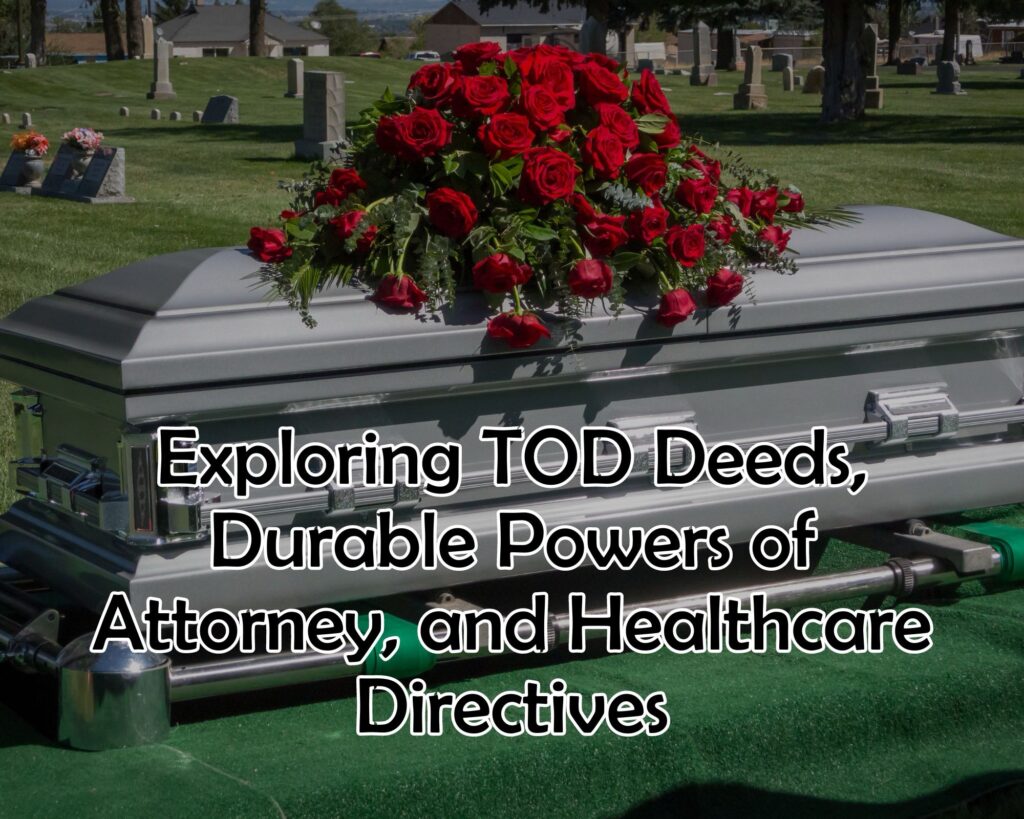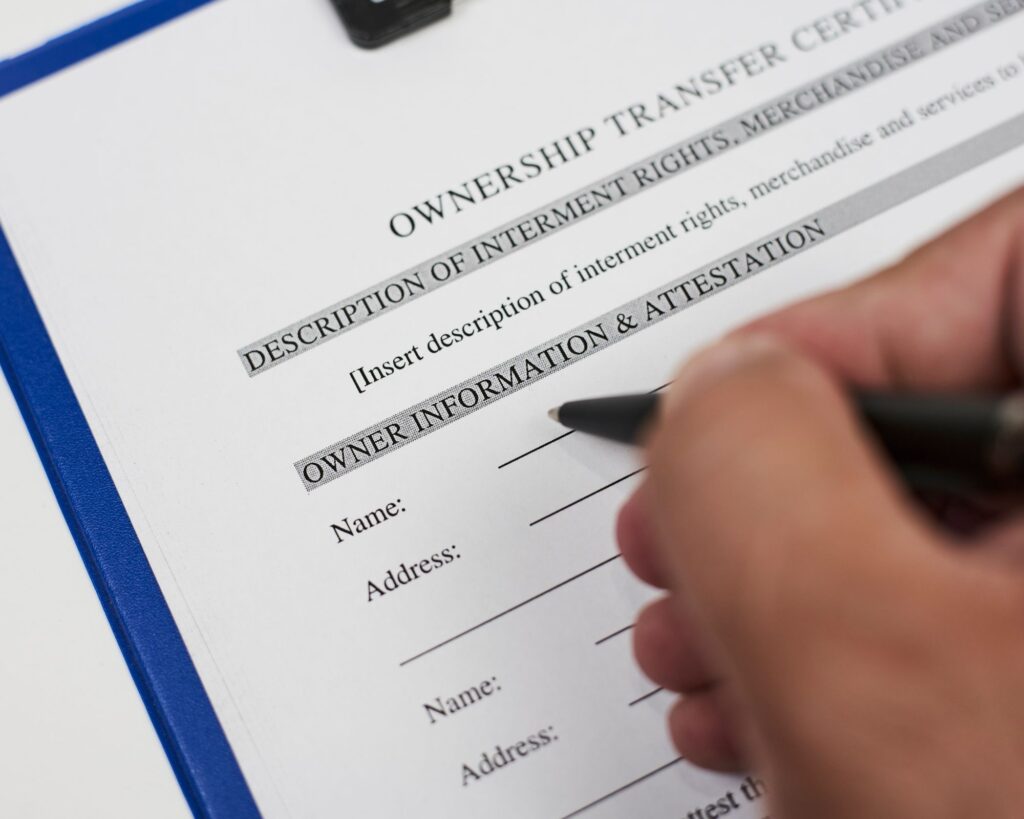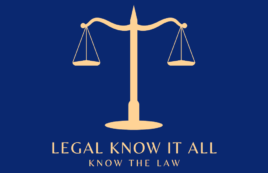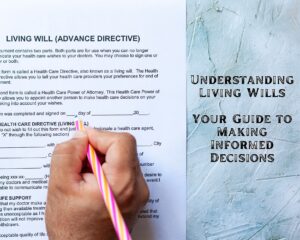Estate planning. It sounds like something only the ultra-wealthy need to worry about, right? Wrong. If you’ve ever nodded off thinking about wills, trusts, and beneficiary designations, it’s time to wake up and smell the legal documents! Estate planning is not just for the rich and famous; it’s an essential step for anyone who wants to make life easier for their loved ones after they’re gone. And guess what? Getting your affairs in order doesn’t have to be a snooze fest.
Let’s dive into the first critical step of estate planning: Beneficiary Designations.

Beneficiary Designations: Your First Line of Defense Against Probate
Ever imagined a world where your hard-earned cash, your prized collection of [insert quirky collection here], or your secret savings account goes directly to the people you love without a hitch? Welcome to the world of beneficiary designations. It’s like giving a VIP pass to your assets, skipping the long lines of legal limbo known as probate.
Why It Matters: When you pass away (not to be morbid, but let’s face it, it’s going to happen), your assets can get tangled up in a lengthy and expensive legal process called probate. This is where the court decides who gets what. But with beneficiary designations, you’re essentially saying, “Hey, I’ve already made the decision, so let’s not bother the judge with this.”
Setting It Up: It’s simpler than setting up your fantasy football league. When you open a bank account, purchase life insurance, or start an investment account, you’re usually asked to name a beneficiary. This person (or people, if you’re feeling generous) will receive the assets directly upon your death, bypassing probate entirely. No courts, no lawyers, just a straightforward transfer of your worldly goods to your chosen ones.
But Wait, There’s More!: While you’re in the mood for avoiding legal hassles, why not take a peek at “8 Wealth-Destroying Habits to Ditch for Financial Freedom?” It’s like spring cleaning for your finances, ensuring that not only your assets but also your financial habits are in tip-top shape for the benefit of your heirs.
The Bottom Line: Beneficiary designations are your secret weapon against the probate process. They ensure your assets go directly to the people you choose, saving time, money, and potentially awkward family gatherings. It’s a small step in the estate planning process, but it packs a powerful punch in making sure your wishes are honored without delay.
Stay tuned as we delve deeper into the world of estate planning, where we’ll uncover the mysteries of TOD Deeds, the power of durable attorneys, and why a living will might just be your best friend. Estate planning might sound as fun as watching paint dry, but trust me, your loved ones will thank you for painting a clear picture of your final wishes.

Transfer on Death (TOD) Deed: Simplifying Home Transfers
Alright, so you’ve nailed the beneficiary designations like a pro. But what about that cozy little nest you’ve built, a.k.a., your home? Enter the Transfer on Death (TOD) Deed, the unsung hero of avoiding probate for your real estate assets. It’s like handing over the keys to your kingdom without the royal pain of court battles.
Why It’s a Game-Changer
Imagine you could bypass the whole circus of legal proceedings and simply hand over your property to your chosen one with a document as powerful, yet straightforward, as a TOD deed. This little piece of paper ensures your home goes directly to your designated beneficiary without passing “Go” and without collecting $200 in legal fees.
The Magic of TOD Deeds
The Process: Filing a TOD deed might sound daunting, but it’s easier than assembling that 500-piece furniture set you regret buying. You fill out the deed, stating who you want to inherit your property, and then record it with your local county office. It’s like a magic spell that only activates upon your departure, leaving your property to your loved ones without the usual hassle.
Cost-Effectiveness: Besides saving your heirs from the headache of probate, TOD deeds can save thousands of dollars in legal fees and taxes. It’s the ultimate act of love and financial savvy, ensuring your hard-earned assets go exactly where you want them to, minus the government’s time-consuming and costly intervention.
Flexibility: Changed your mind? No problem. The beauty of a TOD deed is its flexibility. You can revoke or modify it anytime you’re still kicking, making it perfect for those who like to keep their options open.
To add an extra layer of preparedness to your estate planning, consider diving into “Unlocking Your Social Security at 62: A Strategy for Million Dollar Return”. It’s a fantastic read for those looking to maximize their benefits and ensure financial stability for their heirs.
Wrapping It Up
The TOD deed is a simple yet powerful tool in your estate planning arsenal, especially for homeowners. It allows for a smooth transition of your most valuable asset—your home—to your loved ones, bypassing the expensive and time-consuming probate process. With a TOD deed, you’re not just planning for the future; you’re securing it, making sure your final wishes are respected, and your legacy lives on exactly as you envisioned.
In our next section, we’ll explore the critical roles of Durable Power of Attorney and Healthcare Directives, further unlocking the secrets to a bulletproof estate plan. Stay tuned and remember, estate planning isn’t just about the documents; it’s about the peace of mind they bring to you and your loved ones.

Empowering Your Healthcare and Financial Decisions
So, you’ve got your beneficiary designations and your TOD deed all set. Now, let’s talk about making sure your wishes are known and respected, even if you can’t voice them yourself. This is where the Durable Power of Attorney and Healthcare Directives come into play. They’re like the guardians of your preferences in the worlds of finance and health.
Durable Power of Attorney: The Ultimate Legal Tool
Imagine a superhero who can step in and handle your legal and financial affairs when you can’t. That’s essentially what a Durable Power of Attorney (DPOA) does. It’s a legal document that lets you appoint someone you trust to make decisions on your behalf if you’re incapacitated.
Why It’s Crucial: Without a DPOA, your loved ones might have to go through a lengthy court process just to pay your bills or make decisions about your investments. It’s like locking your finances in a safe without giving anyone the combination.
Flexibility and Control: The beauty of a DPOA is that you get to decide the extent of the power given. Whether it’s handling your daily finances or making significant legal decisions, you set the boundaries.
Choosing Your Hero: The key is to choose someone reliable and financially savvy. It’s like picking your team captain in dodgeball; you want the best player who knows the game inside and out.
Healthcare Directive: Ensuring Your Wishes Are Honored
Now, on to your health. A Healthcare Directive, sometimes known as a Living Will, lets you outline your wishes for medical treatment if you’re unable to communicate them. It’s your voice when you can’t speak, ensuring your healthcare preferences are respected.
Life-and-Death Decisions: Whether it’s deciding on life support, pain management, or surgical interventions, your Healthcare Directive guides your doctors and loved ones, removing the burden of tough decisions from their shoulders.
A Gift of Clarity: By clearly stating your wishes, you’re giving your loved ones the gift of certainty in a time of confusion and emotional turmoil. It’s a way to say, “I’ve got this, so you don’t have to worry.”
To dive deeper into making these critical decisions and ensuring your wishes are clearly communicated, consider exploring “Understanding Living Wills: Your Guide to Making Informed Decisions”. It’s a valuable resource for anyone looking to make informed choices about their healthcare directives.
Wrapping Up
Empowering someone with Durable Power of Attorney and setting up a Healthcare Directive are pivotal steps in ensuring that your wishes, both financial and medical, are honored, no matter what. These tools not only safeguard your preferences but also protect your loved ones from the stress of making those tough decisions on their behalf.
In our next dive into the estate planning journey, we’ll look into the intricacies of the Last Will and Testament and why, even with beneficiary designations and TOD deeds, a Will is a must-have in your estate planning toolkit. Stay tuned, because ensuring your legacy is about more than just assets; it’s about making sure your wishes are known and respected at every turn.

Navigating the Waters of Wills: Your Legacy, Your Terms
With your beneficiary designations, TOD deed, Durable Power of Attorney, and Healthcare Directives in place, you’re well on your way to a rock-solid estate plan. But there’s one more piece of the puzzle to complete your legacy toolkit: the Last Will and Testament. It’s the cornerstone of estate planning, ensuring that your wishes for your possessions, and even your final send-off, are clear and legally binding.
The Last Will and Testament: More Than Just Distributing Assets
Think of your Last Will as the director of your posthumous show. It lays out who gets what, appoints guardians for minor children, and can even dictate your funeral arrangements.
Why It’s Essential: Without a will, the state decides how your assets are distributed, and the results might not align with your wishes. It’s like letting someone else write the final chapter of your life story.
Beyond Money and Property: A will also allows you to appoint an executor, the person who will manage your estate, ensuring that your estate plan is executed as intended. It’s your way of saying, “I trust you to carry out my final wishes.”
Funeral Planning Declaration: Saying Goodbye on Your Terms
Not the cheeriest topic, but planning your funeral in advance can be a final act of kindness for your loved ones. It lifts the burden of decision-making from their shoulders during a time of grief.
Your Funeral, Your Way: From the type of service to the music that plays, your will can specify exactly how you want to be remembered. It’s your last opportunity to express your personality and preferences.
Keeping It Updated: A Living Document
Life changes, and so should your will. Regularly reviewing and updating your will ensures that it always reflects your current wishes and circumstances. It’s like updating your software; neglect it, and things might not run smoothly when it matters most.
For those curious about the quirks of law that could impact your estate plan, check out “6 of Missouri’s Most Bizarre Laws: A Glimpse Into Legal Oddities”. It’s a lighthearted reminder that the legal world can be as unpredictable as life itself, emphasizing the importance of a thorough and up-to-date will.
Crafting Your Comprehensive Estate Plan
Your Last Will and Testament is the capstone of your estate planning efforts. It ensures that your assets, your children, and even the details of your final farewell are handled according to your precise wishes. Coupled with the strategic use of beneficiary designations, TOD deeds, and directives for your health and finances, your estate plan becomes a robust framework that protects your legacy and provides peace of mind to you and your loved ones.
As we conclude our journey through the essentials of estate planning, remember: this isn’t just about dividing up what you own. It’s about leaving a legacy that reflects your values, cares for your loved ones, and communicates your final wishes with clarity and love. Take the time to get these documents in order; future generations will thank you for the certainty and security your forethought provides.
As an Amazon Associate we earn from qualifying purchases through some links in our articles.




